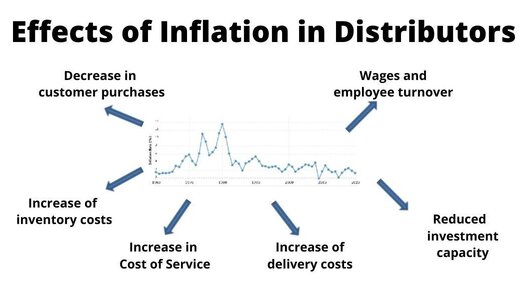During the pandemic, the economy was devastated in many countries. But towards the end of 2021, there was a hope that the damage could be salvaged. But as soon as January 2022 came, the world economy was again hit, and this time, the impact was worse than previously. The 2022 inflation put many countries in dire situations where they had to take some of the most critical financial and economic decisions, yet with no positive result. The USA was not left out of the impact, as inflation hit the country badly.
The global economy was throttled between this and the Russian invasion of Ukraine. Several bottlenecks were created and are still there, even when inflation has started to decline gradually. According to the CPI index report from the US Bureau of Labor Statistics, the CPI for All Urban Consumers fell to 0.1% in November 2022 from 0.4% in October 2022. Another report from Statista exemplified how the changes in CPIs from 2010 to 2021 projected the annual inflation rate in the US will be 2% by 2027.
So, it’s evident that there is no hope to have an economic deflation in the coming few years. Now that we have presented a fundamental scenario of how bad inflation looks in the US let’s focus on understanding how exactly inflation works and its impact. This will help gain more clarity about the sudden fluctuations in the CPIs and the prices of all commodities.

What is inflation, and how does it work?
The first thing to learn is what inflation is. The global economy is most stable, with little fluctuations that can be easily controlled by altering spending, increasing interest rates, levying more taxes, and managing the supply and demand chain. However, when the economy starts increasing and spirals out of control, it is called economic inflation. Inflation is often followed by a recession where the economy falls drastically, with no means of controlling the graph.
Inflation is not restricted to the rise in the price of a single commodity or item, like the mobile phone or groceries. Instead, the price increase is witnessed across multiple industries and sectors in the country’s economy. For instance, with the 2022 inflation, the cost of dollar currency has increased when pitted against other base pairs. Therefore, countries need to pay more to keep trade relations active with the US.
Similarly, in January, the car parts witnessed a price hike, and a couple of months later, the automobile industry witnessed inflation. So, it does not stay limited to one industry or sector. Instead, it spreads and starts affecting several other industries, putting the state of the economy at stake. Almost every entity becomes the victim of inflation, from the federal government to businesses.
What impacts does inflation have on businesses?
Inflation has some severe impacts on businesses, regardless of the business size or market capital. Knowing about the impacts can help make strategies to make the business inflation-proof. Keeping this in mind, we have explained how businesses are impacted due to inflation.

Tighter profit margin
One of the most noticeable impacts of inflation on businesses is the tightening of profit margins. It means businesses must reduce the gap between the total expenses for manufacturing a product and the market sale price. Therefore, achieving the profit margin becomes more difficult, and the revenue flow decreases.
Usually, small and medium-scale businesses suffer the most because they keep their profit margins high to achieve a faster turnaround. But with inflation, it is not possible. Furthermore, if the business deals with essential products and services, the impact of inflation is steeper and more intense on the overall profit margin.
Withdrawal of capital investments
Businesses are forced to withdraw their capital investments in different markets, primarily the share and stock markets. Many shareholders sell their equities to avoid losses, establishing an imbalance in the liquidity pool.
Whether it is out of FOMO or the increasing price of the shares, people become reluctant to buy equities. Therefore, the capital investments are out at risk, making the businesses inflation-proof is crucial. This way, they can protect their investments from higher inflation rates and the impending recession.
Higher raw material costs
With inflation, the raw material costs increase by ten folds. Take the example of the garment industry. A business must purchase the market’s threads, fabrics, and other raw materials. Even if it chooses the wholesale market, it must pay higher than in the past. With the increased raw material costs, it becomes more difficult for small-scale businesses to thrive and continue their operations.
Many businesses need to increase the manufacturing and fabrication cost to maintain their profit margin after purchasing the raw materials at a higher rate. This increases the overall CPIs when the products are rolled out in the market.
Increased rate of unemployment
Although not directly related to the business revenue, many companies have to lay off their employees in bulk. You can consider this a necessary step to managing the business operations with the available funds, as letting employees go can save labor costs and other overhead expenses. This is why the unemployment rate increases, putting more pressure on the state’s economy and employment metrics.
More use of liquid cash
Usually, small and medium-scale businesses deal with liquid capital investments that can be used anytime. However, during inflation, they need to depend more on liquid money, which is why many businesses often take loans from creditors.
As a measure to reduce the impact of inflation, creditors levy higher interest rates than usual. So, not only do businesses need to repay the total debt amount, but they also need to pay a higher interest, even if the profits earned aren’t as per the expectations.
Disrupted in the supply chain
There is no doubt that inflation can disrupt supply chain systems. For instance, the supply of raw food materials to a bakery will get disrupted due to the increase in wheat and other grain prices. As a result, the bakery won’t be able to make the pieces of bread and other types of products it sells. So, overall, the business will be impacted negatively.
Conclusion
In this article, we have introduced you to some of the major ways inflation can cause businesses to come to a standstill or reduce the revenue flow. To ensure the impacts can be reduced, businesses should adopt new and promising practices to protect their revenues. From investing in hedge funds to focusing more on cutting the overheads, there are many ways in which the impacts can be reduced significantly.



